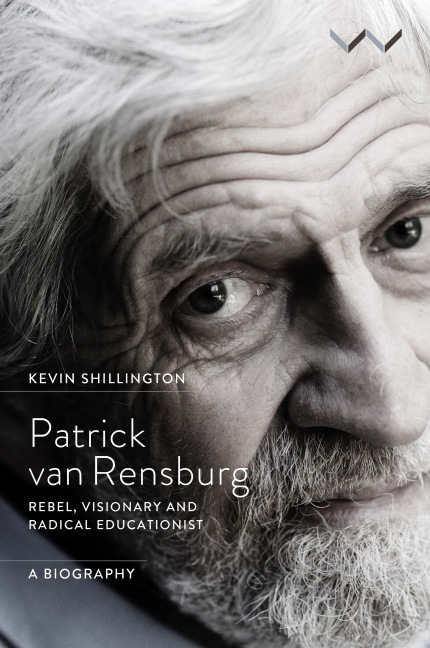Book contents
- Frontmatter
- Dedication
- Contents
- Acknowledgements
- Abbreviations and Acronyms
- List of Illustrations
- Maps
- Introduction
- 1 Origins and Identity in South Africa
- 2 An Anglophone South African, 1936–1948
- 3 The Making of an Afrikaner, 1949–1953
- 4 Diplomat and Rebel, 1953–1957
- 5 Anti-Apartheid Activist, 1957–1959
- 6 Boycott, 1959–1960
- 7 Into Exile, 1960–1961
- 8 Return to Africa, 1961–1962
- 9 The Founding of Swaneng Hill School, 1962–1963
- 10 Challenging ‘The Ladder to Privilege’, 1963–1965
- 11 The Alternative Educationist, 1965–1967
- 12 Expansion and Replication, 1967–1969
- 13 Time of Crisis, 1969–1971
- 14 Education with Production, the 1970s
- 15 Foundation for Education with Production and Spreading the Word, the 1980s
- 16 Education with Production and South Africa, the 1990s
- 17 Return to Botswana
- Epilogue
- Notes
- Bibliography
- Index
Epilogue
Published online by Cambridge University Press: 10 September 2020
- Frontmatter
- Dedication
- Contents
- Acknowledgements
- Abbreviations and Acronyms
- List of Illustrations
- Maps
- Introduction
- 1 Origins and Identity in South Africa
- 2 An Anglophone South African, 1936–1948
- 3 The Making of an Afrikaner, 1949–1953
- 4 Diplomat and Rebel, 1953–1957
- 5 Anti-Apartheid Activist, 1957–1959
- 6 Boycott, 1959–1960
- 7 Into Exile, 1960–1961
- 8 Return to Africa, 1961–1962
- 9 The Founding of Swaneng Hill School, 1962–1963
- 10 Challenging ‘The Ladder to Privilege’, 1963–1965
- 11 The Alternative Educationist, 1965–1967
- 12 Expansion and Replication, 1967–1969
- 13 Time of Crisis, 1969–1971
- 14 Education with Production, the 1970s
- 15 Foundation for Education with Production and Spreading the Word, the 1980s
- 16 Education with Production and South Africa, the 1990s
- 17 Return to Botswana
- Epilogue
- Notes
- Bibliography
- Index
Summary
Patrick van Rensburg's obituaries reminded many and informed the young of the great life he had lived, to the benefit of so many, and after his cremation a large gathering of family, friends and colleagues, government ministers, politicians and a former president assembled at Swaneng Hill School on 24 June 2017 for a memorial service in celebration of a life so well lived for the betterment of humankind.
It was one of those rare occasions when Botswana's opposition parties were united, and their leader, Duma Boko, a Madiba alumnus, was one among many who spoke that day. He pledged that ‘when’ the opposition came to power ‘two years later’, ‘education with production’ would be implemented throughout the country. ‘If we had listened to Patrick van Rensburg 30 years ago,’ he declared with the confidence of a politician in opposition, ‘Botswana would be a First World country today.’ In the event, the 2019 general election did not go his way and the BDP continued as the only governing party in Botswana's history.
It is inevitable that Patrick van Rensburg should be remembered more for his work as an alternative educationist than for his role as an anti-apartheid activist, although he had thrown himself into activism with an intensity that was characteristic of his obsessive personality. As was intended, his Guilty Land informed an audience way beyond South Africa (where it was banned) and influenced many in Europe and America. A number of the expatriate volunteers who came to work on Patrick's projects in Botswana were initially prompted in that direction after reading it.
The late 1950s and early 1960s, however, were years of widespread and dramatic activism in South Africa and the wider African continent, and it was inevitable that Patrick's role should be overshadowed by those of the pantheon of heroes of the anti-imperialist, anti-racist struggle of those years.
From the moment he contemplated reinventing himself as a radical educationist, Patrick read other people's work voraciously and adapted and adopted their ideas as he saw fit. The implementation of his version of Education for Development, however, came mostly through his practical experience of founding a self-help school and finding practical solutions – co-operatives, brigades – to problems as they arose, combined with the inspiration that he drew from his volunteer colleagues, Batswana and expatriate.
- Type
- Chapter
- Information
- Patrick van RensburgRebel, Visionary and Radical Educationist, a Biography, pp. 301 - 306Publisher: Wits University PressPrint publication year: 2020



